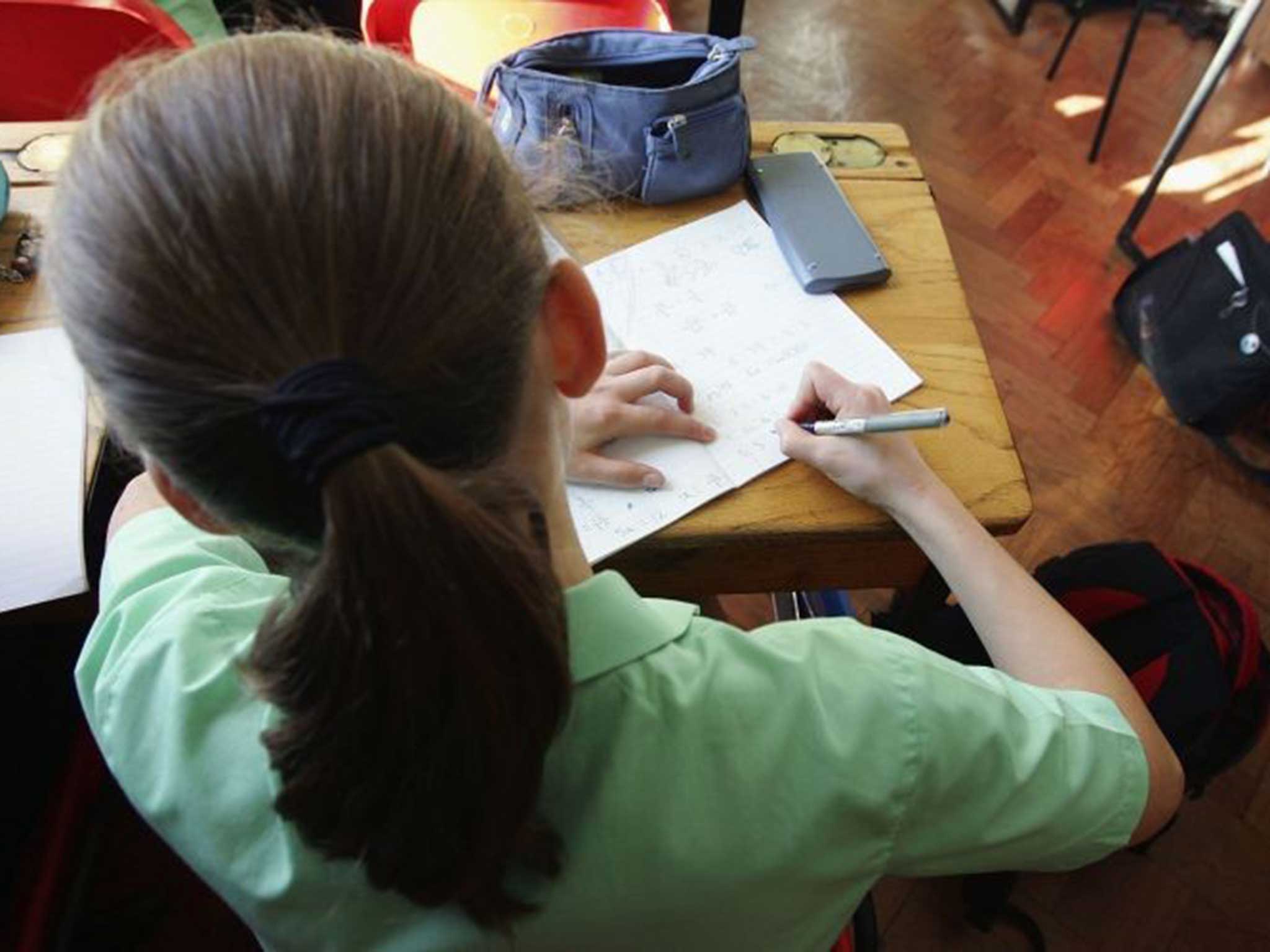GCSE results day 2014: Mixed picture as schools recover from exam reforms
There were wide variations in subjects, with English suffering the biggest drop in top grade passes in the 25-year history of the exam

Top grade passes for teenagers taking their GCSE exams this summer went up for the first time in three years, results showed today.
Figures for the 600,000 candidates taking the exams showed the percentage of top grade A*to C grade passes went up from 68.1 per cent to 68.8 per cent.
However, they masked a mixed picture for the exam in a year which has seen massive changes as a result of former Education Secretary Michael Gove's exam reforms.
The overall A* to G pass rate went down from 98.80 per cent to 98.5 per cent, and the percentage of A* grades from 6.8 per cent to 6.7 per cent.
There were wide variations in subjects, with English suffering the biggest drop in top grade passes in the 25-year history of the exam: the percentage of A* to C grade passes falling from 63.6 per cent to 61.7 per cent.
The subject has been dogged by controversy since marking problems two years ago when the grade boundaries were raised between January and June sittings.
The numbers jumping ship were swelled again this year as a result of the speaking and listening test no longer counting towards the final grade. This test had helped many schools to increase the number of C grade passes to boost their league table ranking.
English literature fell, too, with 76.3 per cent gaining top grade A* to C grade passes compared with 76.8 per cent last year.
However, in maths the picture was rosy with 62.4 per cent gaining A* to C passes compared with 57.6 per cent last year, meaning that the pass rate has overtaken English for the first time ever.
Experts were warning today of extreme "volativity" in individual school results with some going up and others going down.
Professor Alan Smithers, director of the Centre for Education and Employment Research at Buckingham University, said those that had "gamed" the system - mostly struggling schools in deprived areas - were in for a "sharp shock".
Join our commenting forum
Join thought-provoking conversations, follow other Independent readers and see their replies
Comments
Bookmark popover
Removed from bookmarks